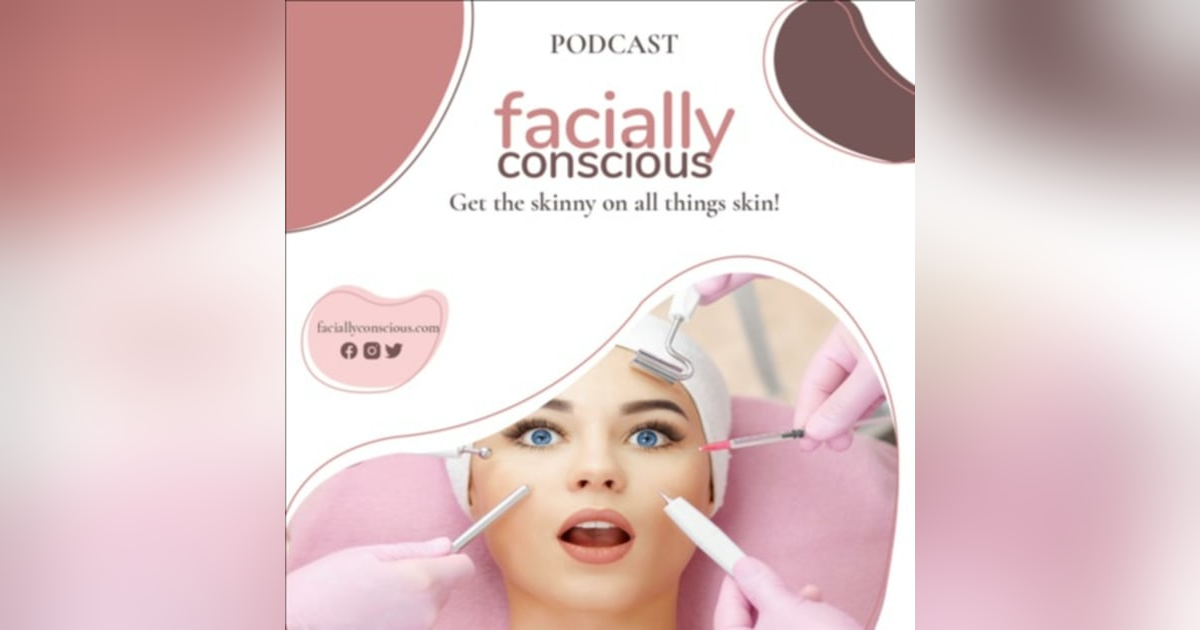Understanding GMOs with Gay Timmons: Organic Products and Skincare

We're thrilled to welcome back Gay Timmons from Oh, Oh Organic! With 32 years of experience in the organic industry, Gay is a leading expert on all things organic, including Genetically Modified Organisms (GMOs). In this blog post, we explore what GMOs are, their implications for agriculture, and their role in skincare products.
To hear the full podcast episode tune into Gays episodes on the Facially Conscious Podcast.
What are GMOs?
Genetically Modified Organisms (GMOs) refer to plants, animals, or microorganisms whose genetic material has been altered in a way that does not occur naturally. In agriculture, GMOs typically involve seed crops like soy, corn, and papaya. The genetic modification process involves inserting specific genes into the DNA of these crops to impart certain desirable traits.
Benefits and Concerns of GMOs in Agriculture
Benefits:
- Increased Yield: GMOs can lead to higher crop yields by making plants more resistant to pests and diseases.
- Reduced Need for Chemicals: By enhancing resistance to herbicides like glyphosate (commonly known as Roundup), GMOs can reduce the need for additional pesticide and herbicide applications.
- Cost Efficiency: Higher yields and reduced chemical usage can lower overall costs for farmers.
Concerns:
- Decreased Genetic Diversity: Reliance on a few genetically modified seed varieties can reduce genetic diversity within crops, potentially making them more susceptible to diseases and environmental changes.
- Dependence on Seed Companies: Farmers may become dependent on a few large seed companies for their crops, which can affect their autonomy and seed diversity.
- Environmental and Health Risks: Glyphosate, a widely used herbicide with GMO crops, has been linked to potential health risks, including cancer. There are also environmental concerns related to the long-term impact of GMOs on soil health and biodiversity.
GMOs in Skincare Products
While GMOs are more commonly discussed in the context of food, they also have implications in the skincare industry. Certain skincare ingredients may be derived from GMO crops. For example, propanediol, a common ingredient in cosmetics, can be sourced from GMO corn.
Safety and Processing:
- GMO-derived ingredients in skincare products undergo extensive processing, which removes any DNA or glyphosate residues. This ensures that the final product is safe for cosmetic use.
- The consensus among experts is that these ingredients do not pose health risks to consumers.
Environmental Considerations:
- Some consumers may prefer to avoid GMO-derived ingredients due to environmental concerns. Opting for products made from non-GMO sources can support soil health and biodiversity.
- Certified organic products do not contain GMO materials. Therefore, if a product is certified organic, there is no need for an additional non-GMO certification.
Ultimately:
GMOs play a significant role in modern agriculture, offering benefits like increased yield and reduced chemical use, but also posing concerns regarding genetic diversity, environmental impact, and health risks. In skincare, GMO-derived ingredients are considered safe for use, but consumers may choose non-GMO products for environmental reasons. Remember, if a skincare product is certified organic, it is free from GMO materials, providing a reliable option for those who prioritize organic and non-GMO choices.
SHOW NOTES
GMO - Genetically Modified Organisms
GMM - Genetically Modified Microorganisms
**Disclaimer** Any articles or information we say "are in the show notes" can be found in our blog about this episode blog at faciallyconscious.com.
Have a question? Send us an email at info@faciallyconscious.com
LIKE, FOLLOW & REVIEW US ON INSTAGRAM, & WHERE YOU LISTEN TO PODCASTS!
Visit our website faciallyconscious.com
Join our new Patreon and Substack for more content from Facially Conscious
Follow Our Hosts On Instagram
Trina Renea - Medically-trained master esthetician and celebrities’ secret weapon @trinareneaskincare and trinarenea.com
Julie Falls- Our educated consumer is here to represent you! @juliefdotcom
Dr. Vicki Rapaport -Board Certified dermatologist with practices in Beverly Hills and Culver City @rapaportdermatology and https://www.rapdermbh.com/
Rebecca Gadberry - Our resident skincare scientist and regulatory and marketing expert. @rgadberry_skincareingredients








